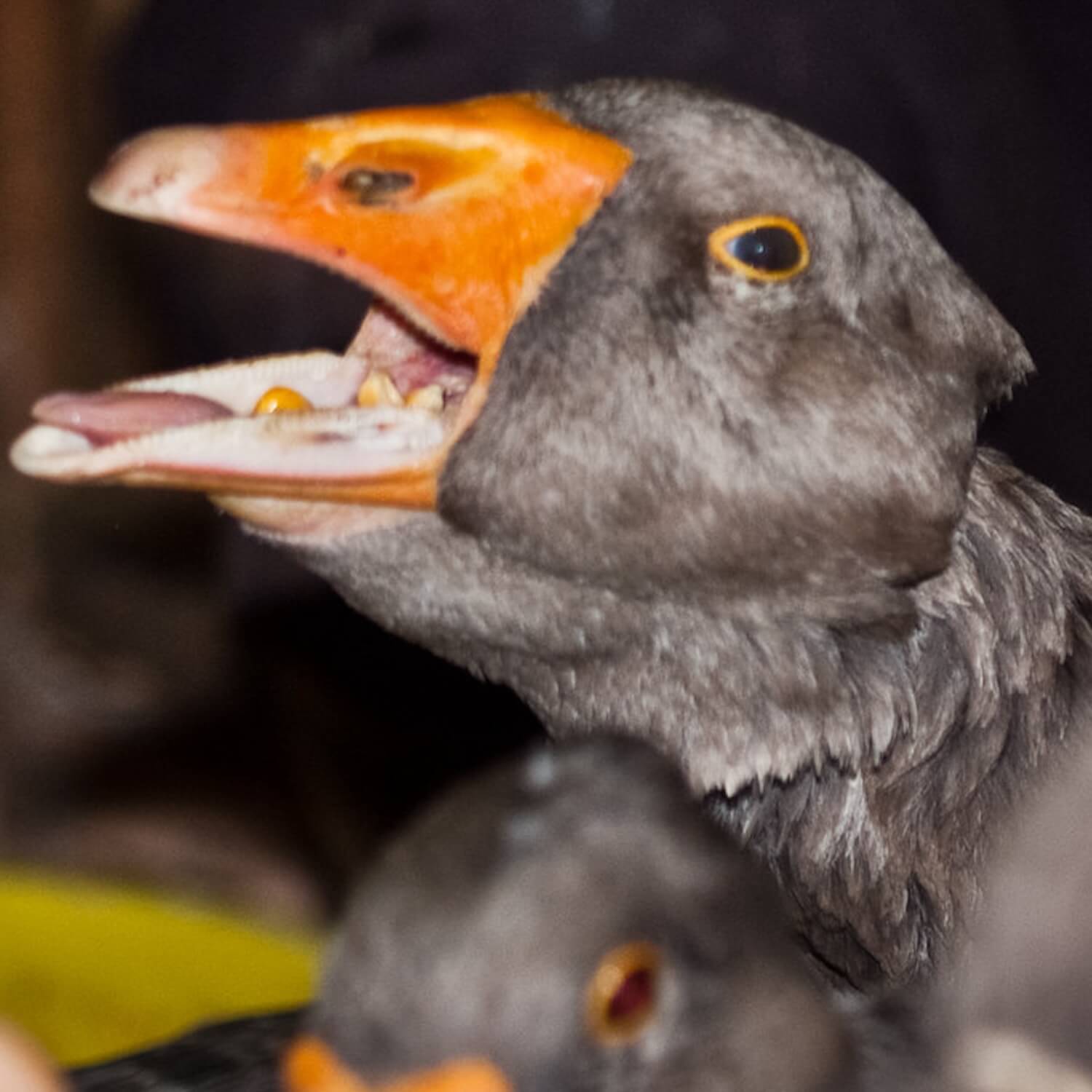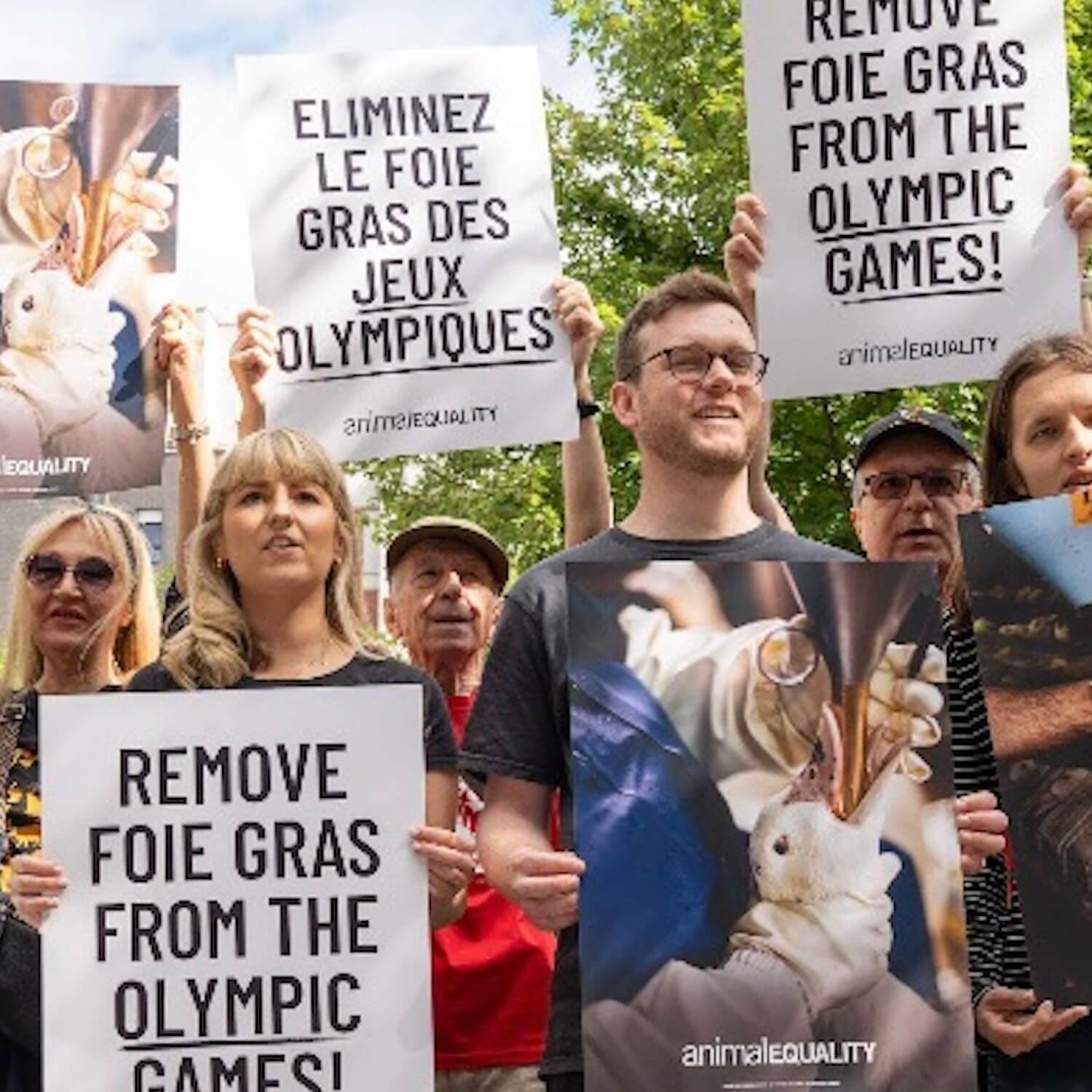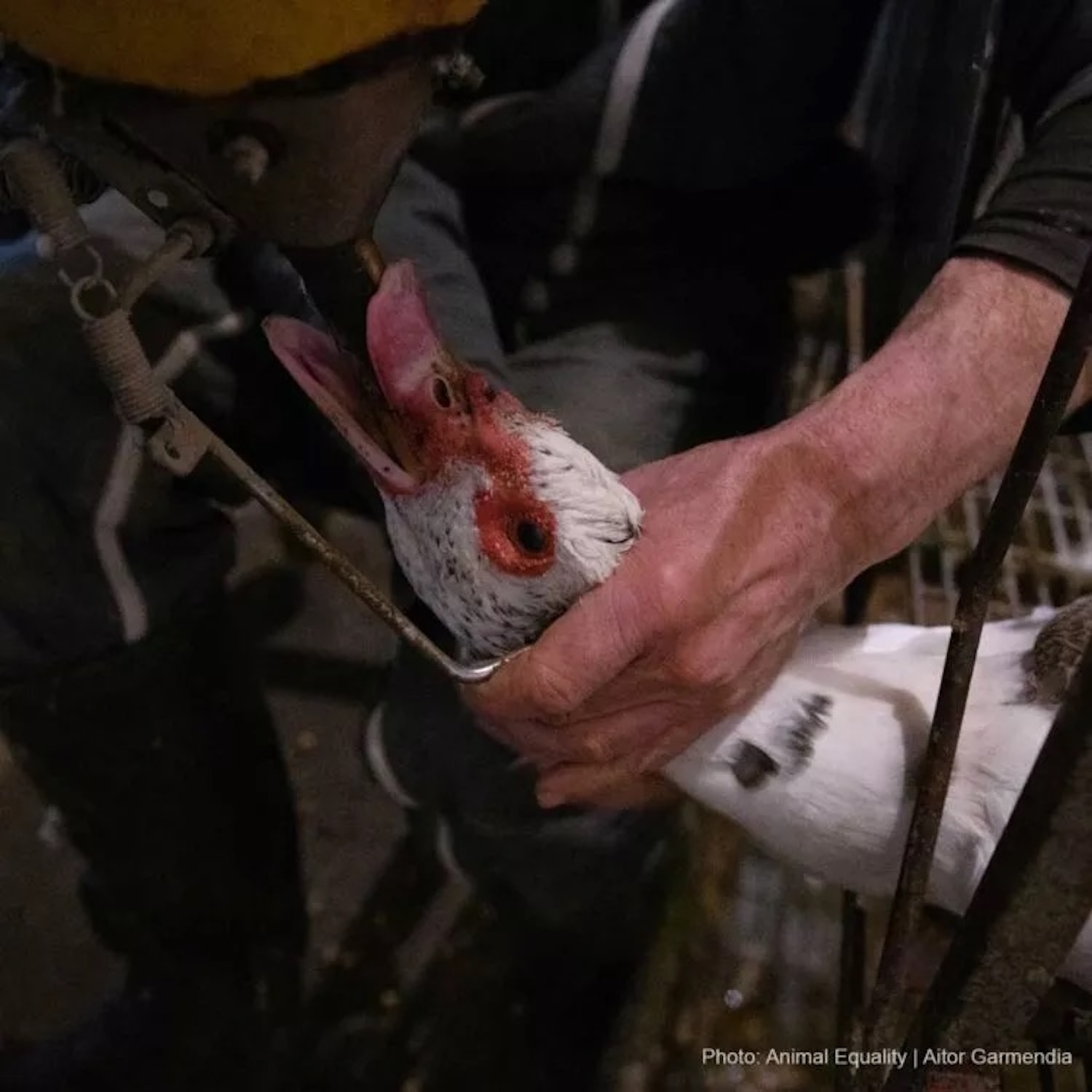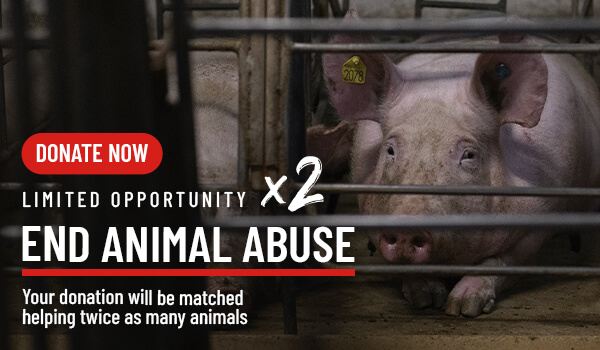Animal Equality Prompts Parliamentary Debate On Sale and Importation of Foie Gras
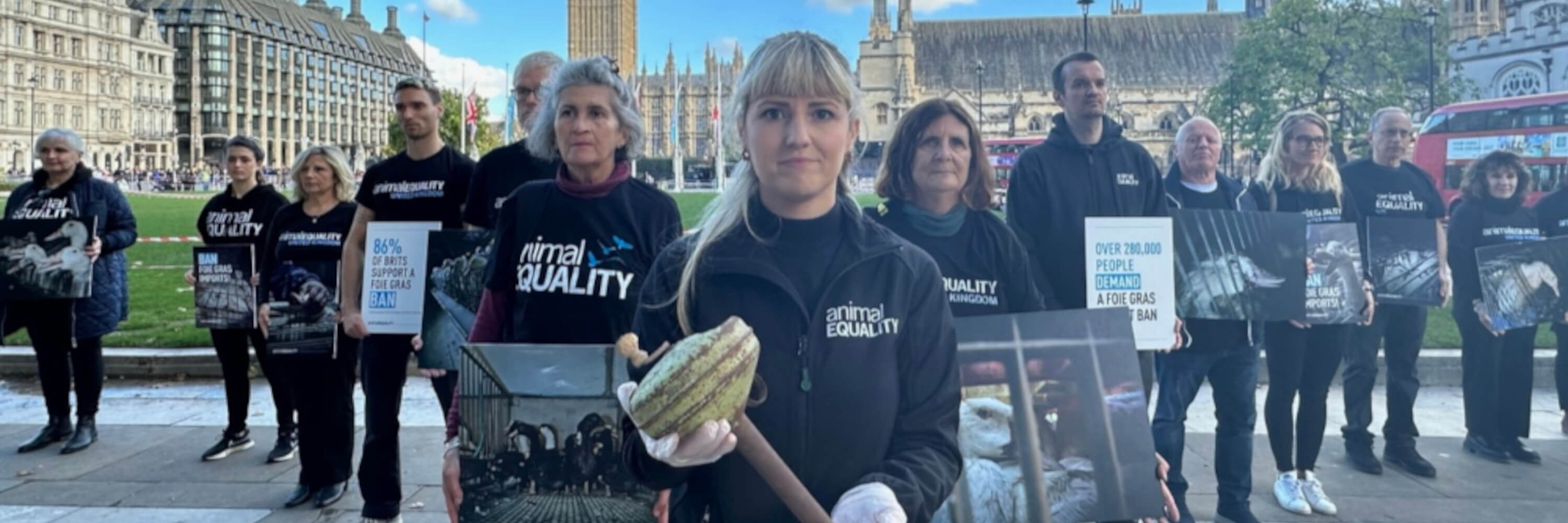
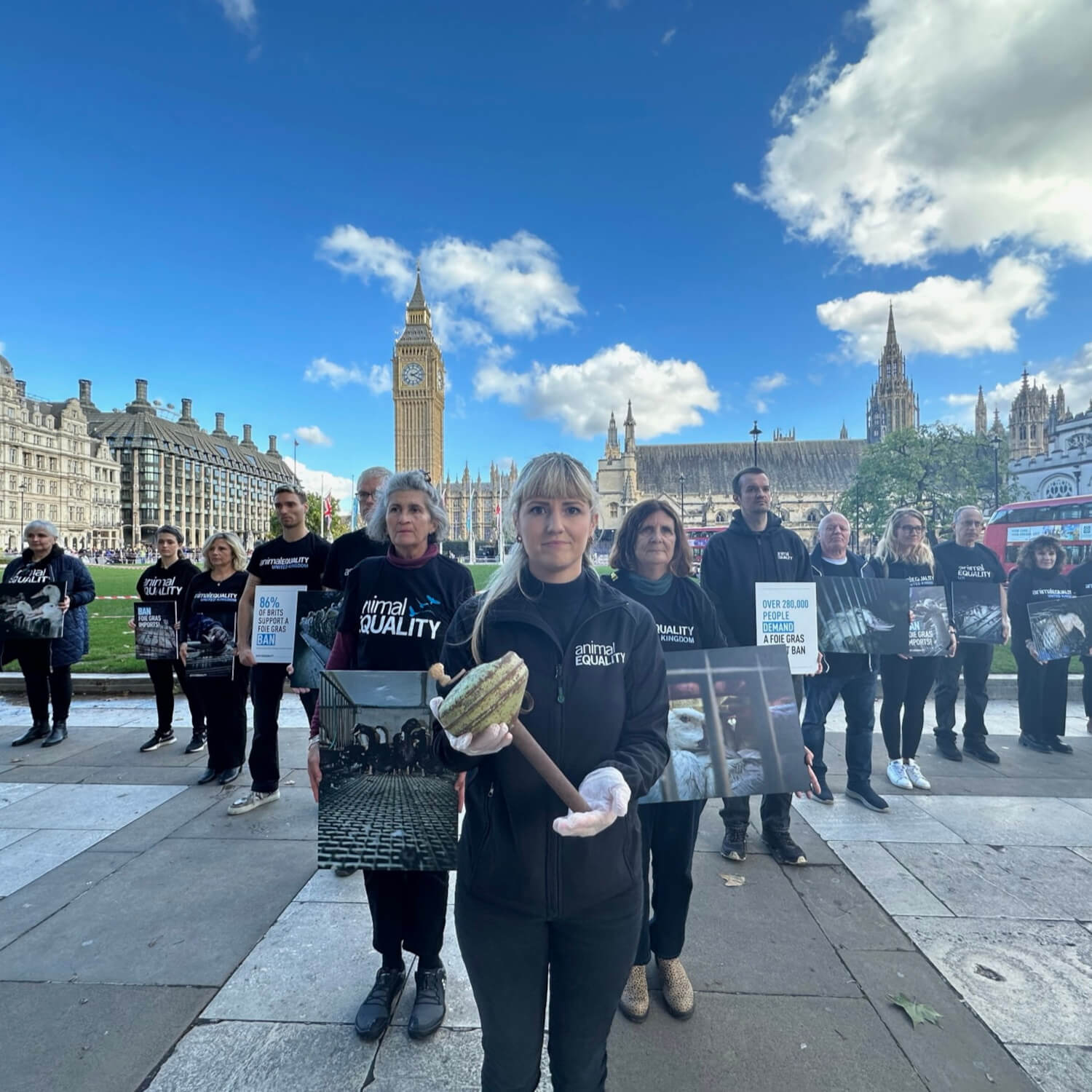
Putting a foie gras ban back on the Parliamentary agenda
‘Foie gras’ is a French term that translates to ‘fatty liver’. It is produced by brutally fattening up ducks and geese using a feeding tube that is forced down their throats. This process intentionally swells their livers ten-fold and induces disease.
Because of these cruel production methods it has been illegal to produce foie gras by force-feeding in the UK for over a decade. However, businesses exploit a legal loophole: they simply import it from countries where force-feeding is legally permissible and sell it in UK stores and restaurants, profiting from animal cruelty in the process.
In 2022, the Government tabled a bill which would have banned the import and sale of foie gras produced by force-feeding. The move had widespread public support: a YouGov poll in June 2023 showed 86% of respondents surveyed (excluding the ‘don’t know’ responses) were in favour of a ban, and there are over 280,700 signatures on Animal Equality’s petition (which you can sign now here).
Despite this, in a disappointing betrayal of voters and animals, the Government U-turned this year and withdrew its support for the ban.
But we refuse to let that be the end of the matter. Standing up for the animals, Animal Equality UK’s Executive Director Abigail Penny contacted Giles Watling MP, her local MP, and laid out our concerns. Moved by this correspondence, he secured an important Westminster Debate to revisit the issue of banning the importation and sale of foie gras.
This thrust the issue back into the political spotlight and provided our team with the opportunity to do two things: firstly, to protest outside Parliament and raise awareness of plight of ducks and geese who suffer at the hands of this industry; and secondly to fill every last seat in public gallery inside Parliament to show the MPs present that this was an issue their voters care about.
What happened outside Parliament?
Assisted by an impressive group of volunteers and activists, Animal Equality’s team took to the streets of Westminster, armed with placards and video screens, allowing the public to look directly into the eyes of the victims of the foie gras trade.
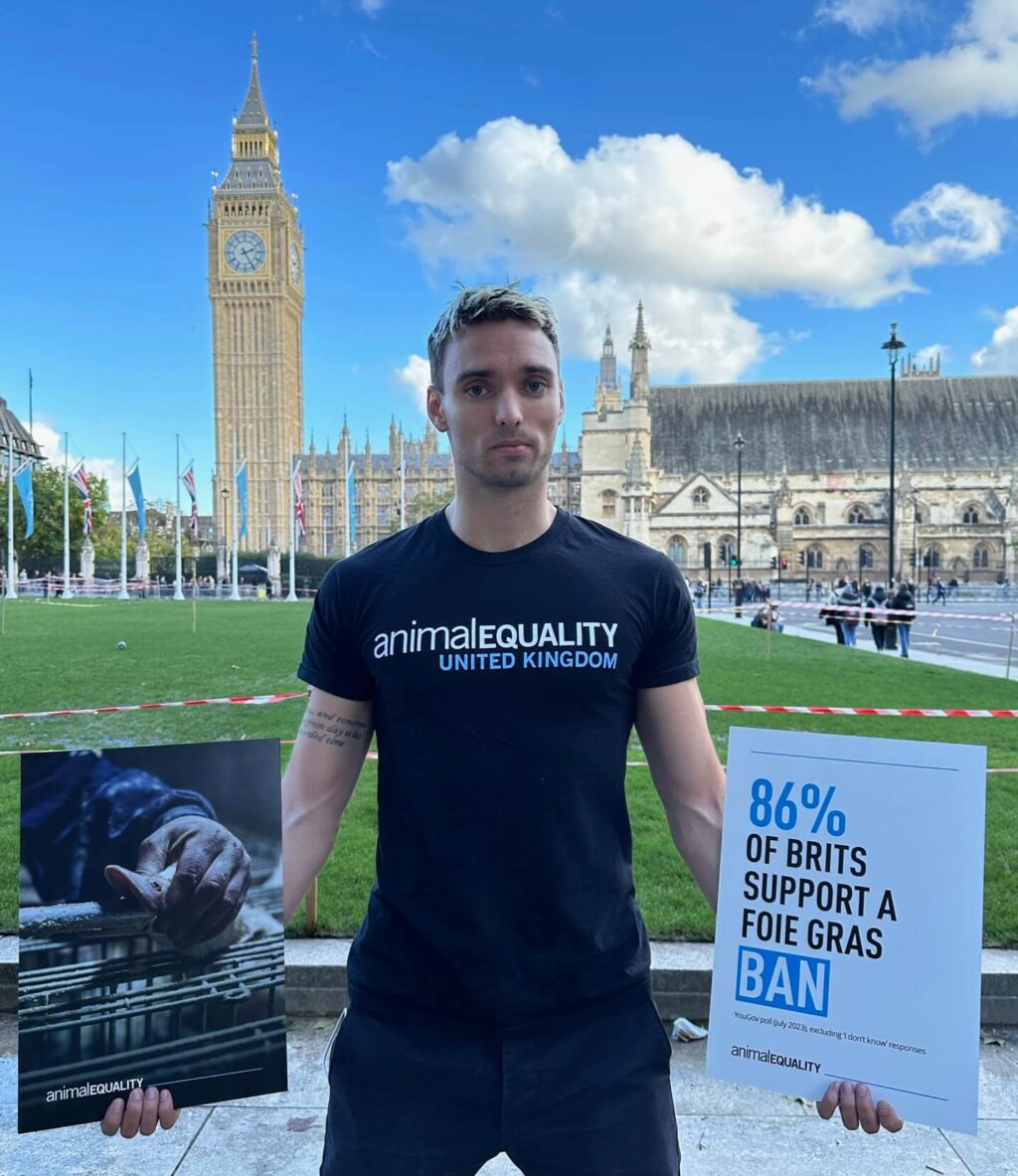
We also brought with us a ‘gavage tube’ with them. This haunting instrument is the metal funnel that is forced into the animals’ throats. It ensures they have no choice but to keep eating long after they are painfully full. Passersby were visibly shocked and appalled.
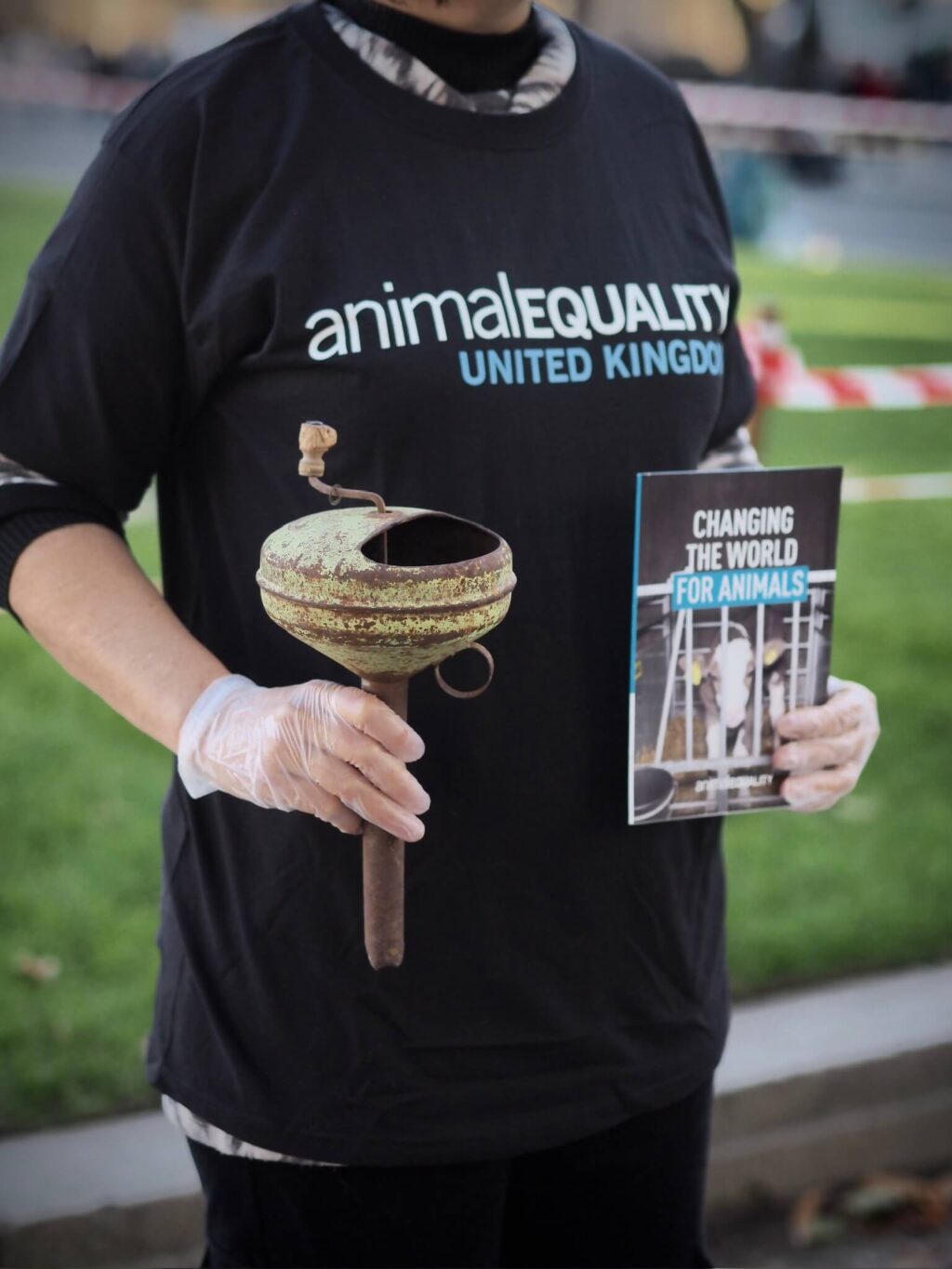
Our activists also handed out delicious faux foie gras. This was prepared using a recipe developed by Alexis Gauthier, a Michelin-starred French chef who runs multiple plant-based restaurants in central London. This allowed for positive interactions with members of the public, and showed that there is no need for animals to suffer for delicious food.
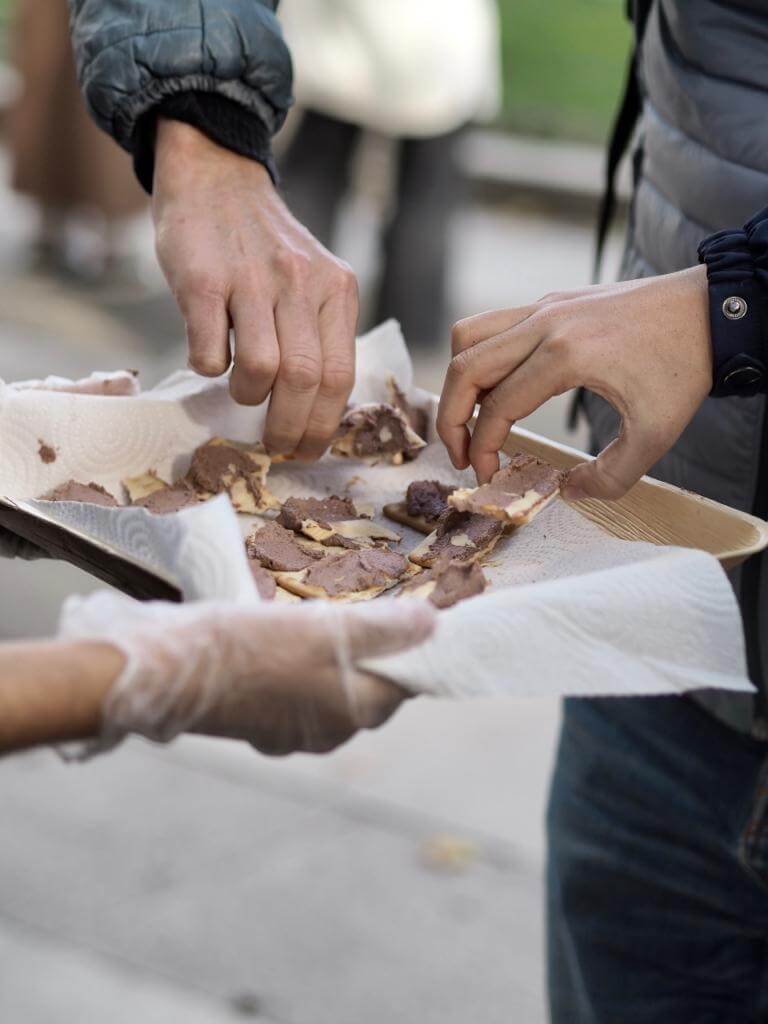
What happened inside Parliament?
Equipped with a briefing document prepared by Animal Equality, Giles Watling MP led the charge. He spoke passionately, shining a light on the suffering of ducks and geese. He took the opportunity to hold to account the Parliamentary Under-Secretary of State for Environment, Food and Rural Affairs for the Government’s inaction.
It was heartening to him citing passages directly from our brief, and hitting all of the key arguments for a ban: the unacceptable cruelty, the public backing, the disease risks and even the fact that the King himself has ensured that foie gras is no longer served at Royal residences.
Noting the King’s stance, Giles went even further, promising on record that he would raise with the Speaker the prospect of banning foie gras from all menus on the Parliamentary estate.
A number of other MPs intervened to voice their support for a ban. Henry Smith, MP for Crawley, made the point that:
If we deem foie gras too cruel to be produced in this country, we should also agree that, by definition, it is too cruel to be imported.
Henry Smith, MP for Crawley
The condemnation of foie gras is an issue that transcended party lines, with opposition MP for Newport West, Ruth Jones making a number of impassioned interventions and reiterating her party’s attempt to introduce a ban back in 2020.
Bob Stewart, MP for Beckenham, nodded to our team in the public gallery before making an impassioned plea on behalf of the animals, stating:
Ducks and geese are sentient animals; they have feelings. Imagine all of us stuck in a cage with someone opening our mouths and stuffing stuff down our throats—God, how awful that would be! We have to get rid of this stuff.
Bob Stewart, MP for Beckenham
Even Parliamentary Under-Secretary of State for Environment, Food and Rural Affairs (whose role was to represent the Government at the debate) agreed with Mr Stewart about the “horrible cruelty” involved, later adding “I would certainly never buy it”.
She stressed that animal welfare is a “huge Government priority”, said that the Government was gathering an evidence base to support future decisions. She promised to pass on the comments made to the Minister for Food, Farming and Fisheries.
Seizing the attention of the press
The full debate was broadcast live on Parliament TV and reported in Hansard. Key passages were then picked up by local, national and international news: from London’s Evening Standard, to national press such The Independent , The Mirror, The Times, Times Radio, BBC Radio 4, as well as international news giants like Yahoo and MSN. It even reached the pages of foreign news outlets as far away as Malaysia!
There is still time to get foie gras banned
The debate and response, both in the press and on the streets, proves that there are still so many people – both inside Parliament and out – who want to put an end to this cruel practice.
It is also an example of why the tactical interventions and relentless campaigning of organisations like Animal Equality are vital to keep issues like this on the Parliamentary agenda. Without Abigail writing to her MP and providing a thorough brief, the issues facing geese and ducks might well have fallen by the wayside.
This was all, ultimately, only achievable thanks to the generosity of our supporters, without whom we would not be able to do anything at all.
While this debate was incredibly encouraging, the Government continues to stall, saying they will keep looking into and building upon the ‘evidence base’. Enough is enough: a ban is needed, now.
We can’t do this without you. We need your help to keep building on this momentum and keep the pressure on our politicians to end this suffering.
Please support us by making a donation today. Let’s end this brutality together.
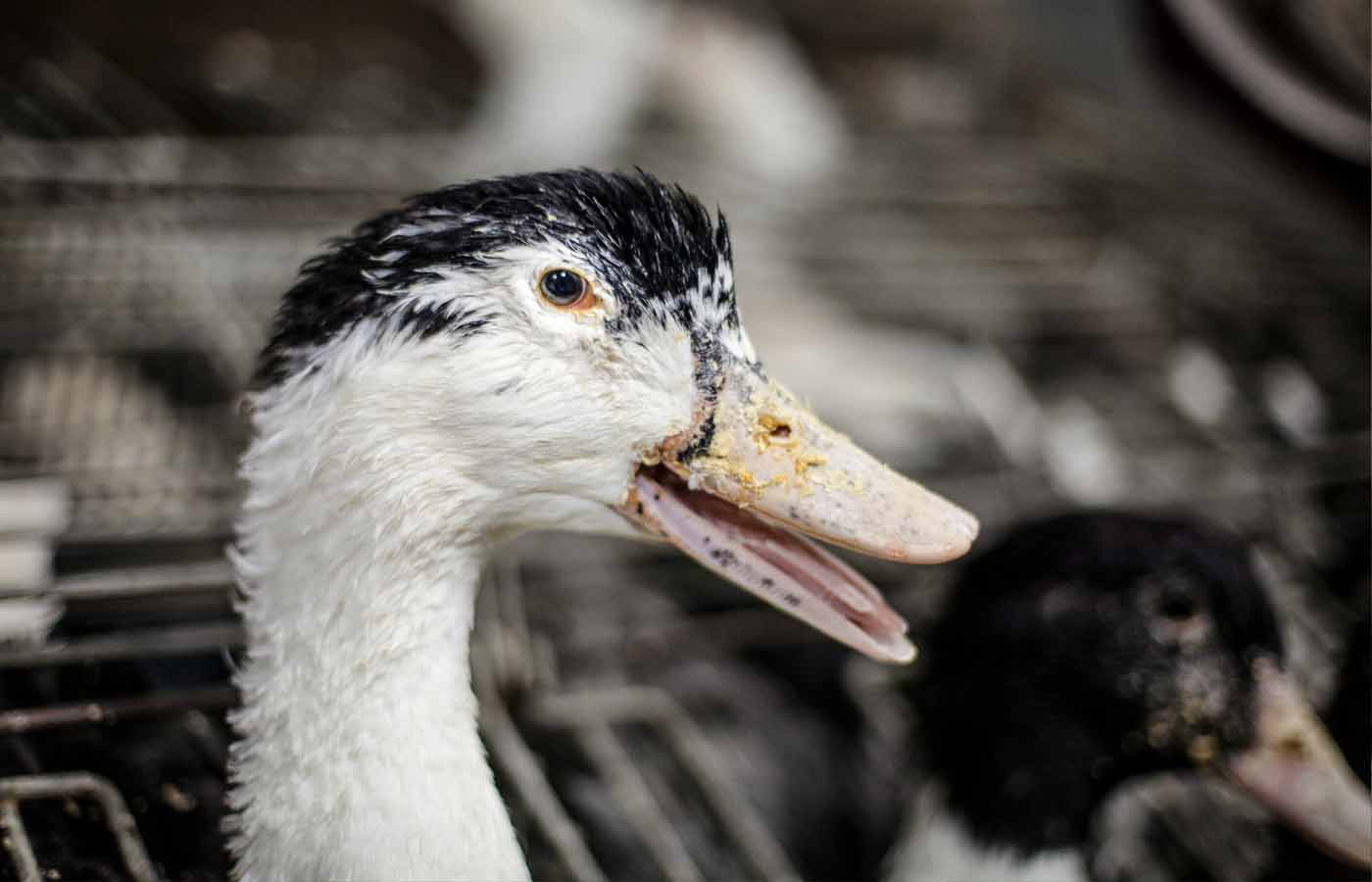
END THE CRUELTY
Foie gras is immensely cruel. Its production causes ducks and geese severe physical and psychological pain. You can protect ducks and geese by opting for plant-based alternatives.

